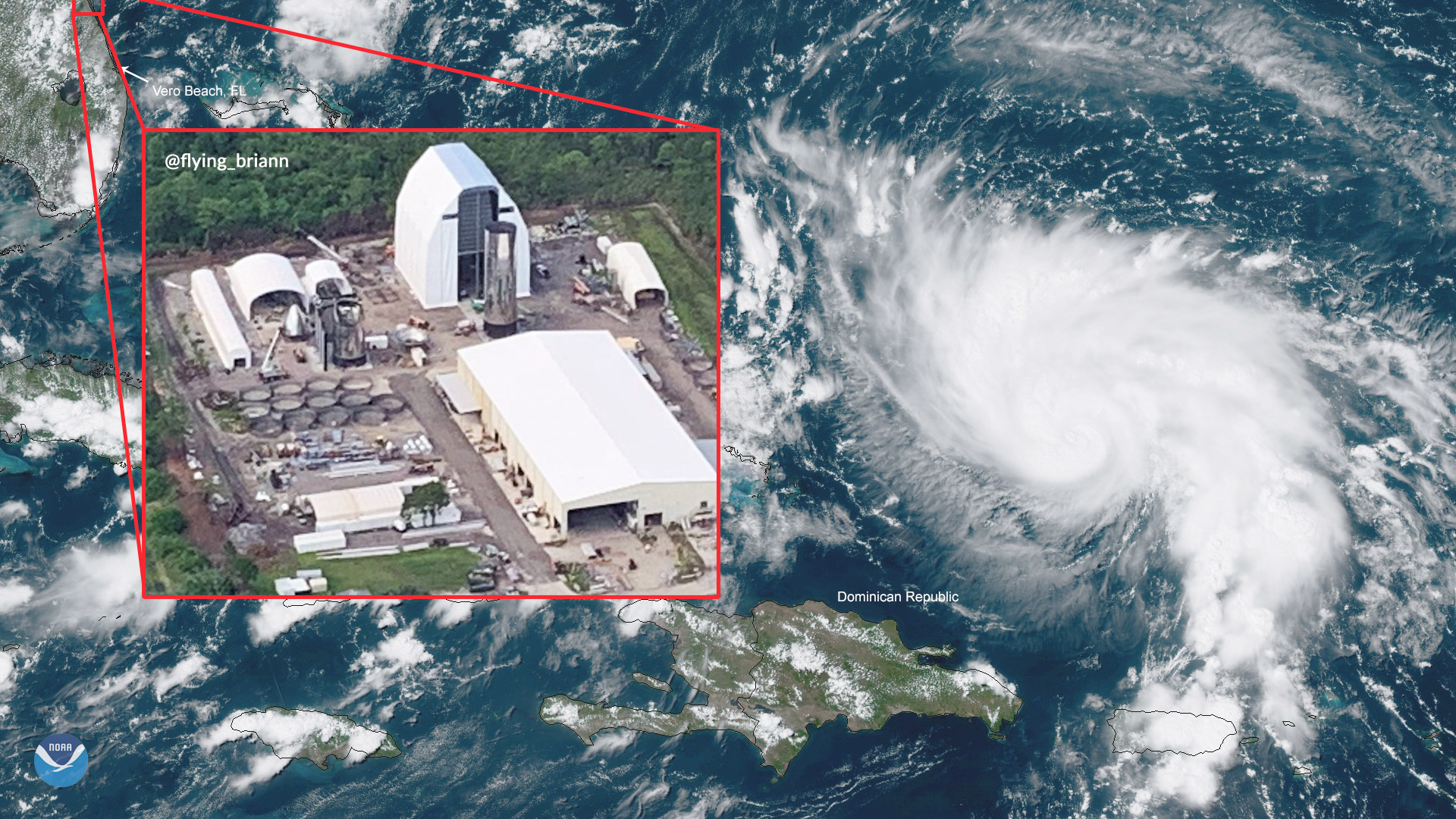
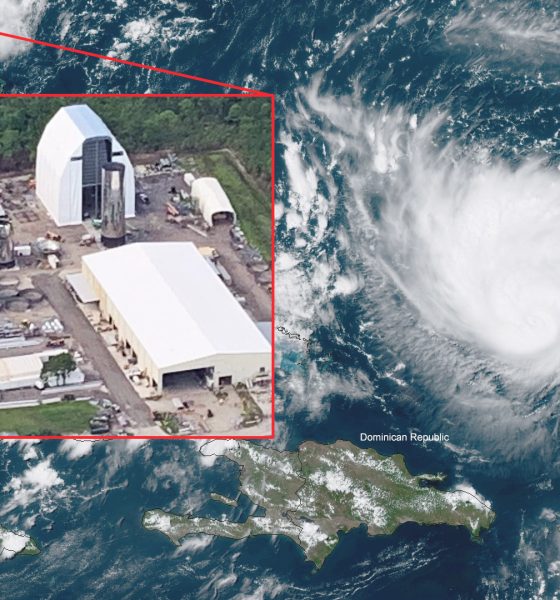
News
SpaceX braces for Florida-bound Dorian as hurricane threatens local Starship facility
Hurricane Dorian is currently growing into a potentially devastating Atlantic storm some 1,200mi (~2000km) off the Florida Coast and local spaceflight facilities – including SpaceX’s launch pads and Starship campus – are at high risk.
As of the latest storm advisories, Hurricane Dorian is likely to grow into a Category 3 or 4 storm prior to making landfall somewhere along the East Coast of Central Florida. Dorian’s ground track forecast is unusually uncertain just four days out from landfall, but the Space Coast’s Kennedy Space Center (KSC), Cape Canaveral Air Force Station (CCAFS), and other local spaceflight facilities (including SpaceX’s) are at high risk and are preparing for a worst-case scenario.
HURCON V – I
As of 0800hrs Wednesday morning, Brigadier General Doug Schiess – Commander of the 45th Space Wing at Cape Canaveral Air Force Station and Director of the Eastern Range at Patrick Air Force Base – initiated HURCON V preparations across Cape Canaveral Air Force Station (CCAFS) and surrounding areas. This precaution is triggered when storm winds in excess of 50 knots (58mph) are measured fewer than 96 hours to landfall. While CCAFS hurricane operations begin 96h out from landfall, KSC’s preparations begin after HURCON IV, indicating that storm winds in excess of 50 knots (58mph) have been measured 72 hours out from landfall. All facilities then follow a HURCON IV – I warning system that defines a series of preparation events and personnel evacuation plans.
A HURCON IV issuance will see all personnel report for duty as usual while specialized teams will begin implementing organization-specific checklists, vehicles are fueled, and storm Ride-Out Team (ROT) personnel will be identified. From there as the storm approaches non-essential personnel will be evacuated, facilities will be secured, and roads will be closed. ROT personnel will remain on-site and will begin the evaluation of the premises once the storm has passed.
SpaceX follows KSC’s lead, battens down Starship hatches
As SpaceX leases Launch Complex 39-A from KSC it is expected that they will follow all precautions initiated by KSC as they did almost two years ago amid launch preparations during HURCON III conditions while facing down Hurricane Irma. SpaceX has released an official statement confirming the obvious: the company is working closely with KSC and CCAFS to monitor weather conditions and plan to take all necessary precautions before, during, and after landfall.
SpaceX may not be new to preparing its Florida launch facilities for hurricanes and tropical storms, but Hurricane Dorian poses entirely new challenges due to the fact that the company has recently begun operating a fairly extensive Starship production facility in Cocoa, Florida. The vast majority of Cocoa’s work is done entirely out in the open, rarely protected by more than a spartan windbreak or temporary tent. According to local photographer Greg Scott, SpaceX has paused all Starship production work for the moment and is working all-out to secure its facilities as the potentially catastrophic Cat 4 Hurricane Dorian fast approaches.
The total lack of hurricane-rated protection puts SpaceX’s Starship facility at exceptionally high risk. The Cocoa production facility is thus facing many obstacles with hurricane preparedness as the majority of Starship production takes place outside and is completely vulnerable to the elements. Aerial photos depict what a daunting – if not utterly impossible – task it will be to secure all of the current production pieces of Starship Mk2.
Along with the main section structures and the completed nose cone section of Starship, many smaller fabrication pieces including large steel rings, a large bulkhead, and an array of assembly tools will need to be secured. Luckily a newly constructed wind guard structure covered in a white canvas material seemingly just reached completion and may be used to house the largest section of Starship if teams can manage to move it inside before storm conditions arrive.
Although it is surely going to suffer some damage from hurricane-force winds, the tent structure should offer some limited protection for any hardware that can be moved inside it. While Starship is being fabricated to withstand the stresses of launch and re-entry conditions, it may not be able to stand against the fury of a hurricane in its current fragile state.
Been here before…
SpaceX has faced damage to Starship prototypes at the hand of wind before. The first prototype – now known as Starhopper – constructed at their testing facility in Boca Chica, TX originally featured a tall nose cone portion that was ultimately lost. A storm that brought 50mph (80 km/h) wind gusts blew through and knocked the fairing piece off of its concrete stand and resulted in a completely crumpled heap of steel mess. The loss of the nose cone ended up being purely aesthetic and caused little to no setback to Starhopper testing – delayed instead by issues with Raptor engines.
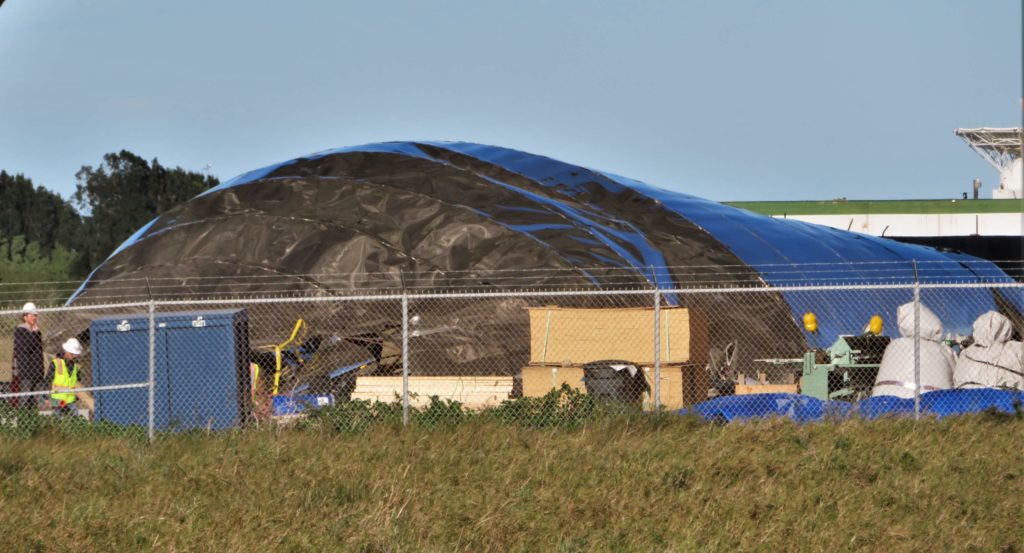
Any damage suffered in Cocoa as an effect of Hurricane Dorian will almost certainly cause setbacks for SpaceX. Even if SpaceX gets extremely lucky and suffers no direct damage from a glancing blow, disruption to local infrastructure (power, waste, water, industry) could significantly hamper production operations. In the event that Dorian makes landfall at or near Cape Canaveral, Starship Mk2 and the many Super Heavy-related steel rings and facilities situated around the Cocoa campus could easily be destroyed or damaged beyond salvage, owing to the fact that they are made out of relatively thin and lightweight metal and have expansive, sail-like surface areas.
On the plus side, if any of the above does occur, SpaceX is simultaneously building a second near-identical prototype – Starship Mk1 – at its Boca Chica, Texas facilities. Disruption is undesirable, but SpaceX and its Starship program will likely (and hopefully) be largely unharmed. Additionally, SpaceX’s next Falcon 9 launch out of Florida is an internal Starlink mission scheduled no earlier than late October, leaving at least 1.5-2 months for clean-up and any necessary repairs.
Check out Teslarati’s Marketplace! We offer Tesla accessories, including for the Tesla Cybertruck and Tesla Model 3.

Cybertruck
Tesla confirms date when new Cybertruck trim will go up in price
Tesla has officially revealed that this price will only be available until February 28, as the company has placed a banner atop the Design Configurator on its website reflecting this.
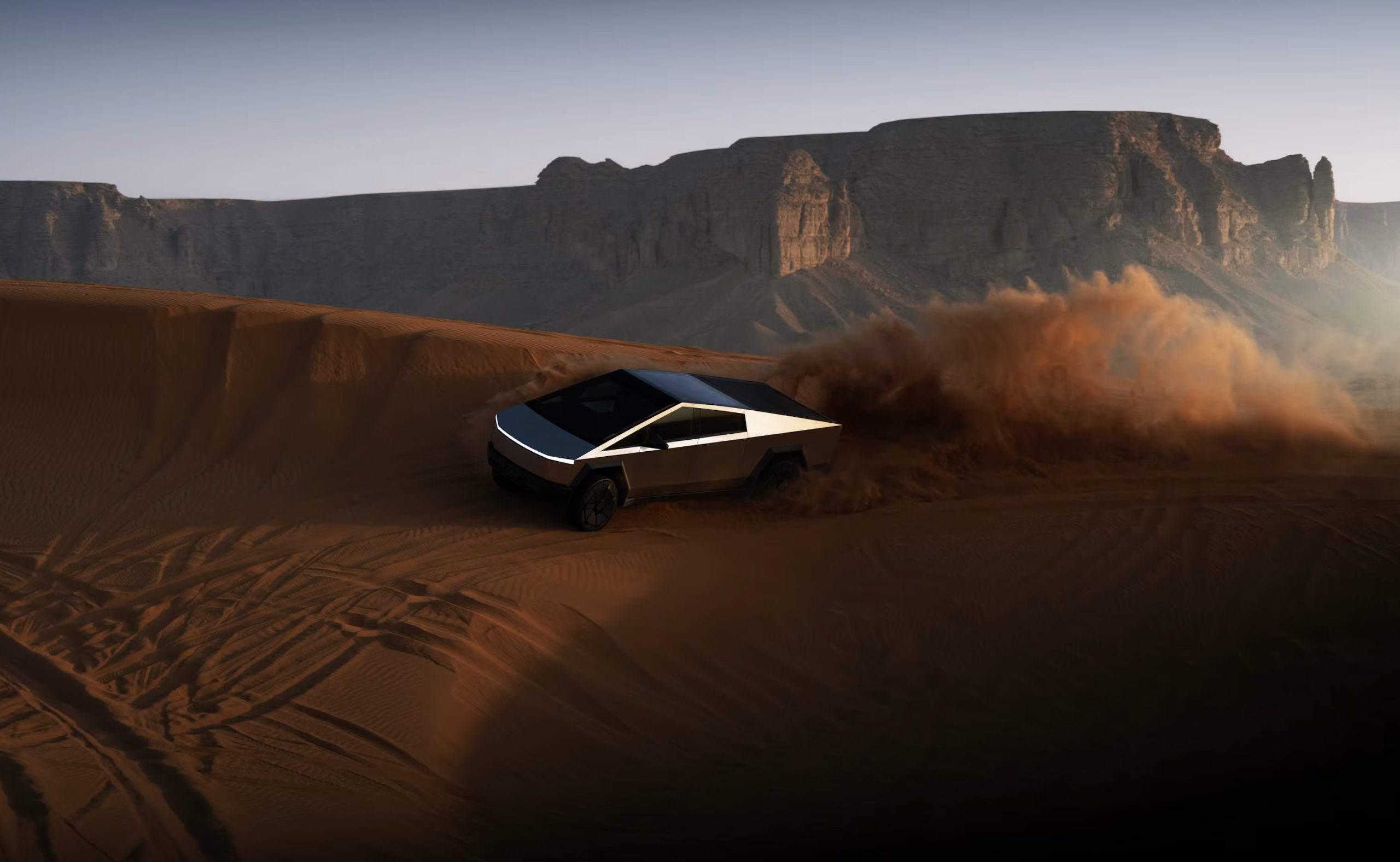
Tesla has confirmed the date when its newest Cybertruck trim level will increase in price, after CEO Elon Musk noted that the All-Wheel-Drive configuration of the all-electric pickup would only be priced at its near-bargain level for ten days.
Last week, Tesla launched the All-Wheel-Drive configuration of the Cybertruck. Priced at $59,990, the Cybertruck featured many excellent features and has seemingly brought some demand to the pickup, which has been underwhelming in terms of sales figures over the past couple of years.
Tesla launches new Cybertruck trim with more features than ever for a low price
When Tesla launched it, many fans and current owners mulled the possibility of ordering it. However, Musk came out and said just hours after launching the pickup that Tesla would only keep it at the $59,990 price level for ten days.
What it would be priced at subsequently was totally dependent on how much demand Tesla felt for the new trim level, which is labeled as a “Dual Motor All-Wheel-Drive” configuration.
Tesla has officially revealed that this price will only be available until February 28, as the company has placed a banner atop the Design Configurator on its website reflecting this:
NEWS: Tesla has officially announced that the price of the new Cybertruck Dual-Motor AWD will be increasing after February 28th. pic.twitter.com/vZpA521ZwC
— Sawyer Merritt (@SawyerMerritt) February 24, 2026
Many fans and owners have criticized Tesla’s decision to unveil a trim this way, and then price it at something, only to change that price a few days later based on how well it sells.
Awful way to treat customers – particularly when they already sent out a marketing email announcing the $59,990 truck…with zero mention of it being a limited-time offer.
— Ryan McCaffrey (@DMC_Ryan) February 24, 2026
It seems the most ideal increase in price would be somewhere between $5,000 and $10,000, but it truly depends on how many orders Tesla sees for this new trim level. The next step up in configuration is the Premium All-Wheel-Drive, which is priced at $79,990.
The difference between the Dual Motor AWD Cybertruck and the Premium AWD configuration comes down to towing, interior quality, and general features. The base package is only capable of towing up to 7,500 pounds, while the Premium can handle 11,000 pounds. Additionally, the seats in the Premium build are Vegan Leather, while the base trim gets the textile seats.
It also has only 7 speakers compared to the 15 that the Premium trim has. Additionally, the base model does not have an adjustable ride height, although it does have a coil spring with an adaptive damping suspension package.
Cybertruck
Tesla set to activate long-awaited Cybertruck feature
Tesla will officially activate the Active Noise Cancellation (ANC) feature on Cybertruck soon, as the company has officially added the feature to its list of features by trim on its website.
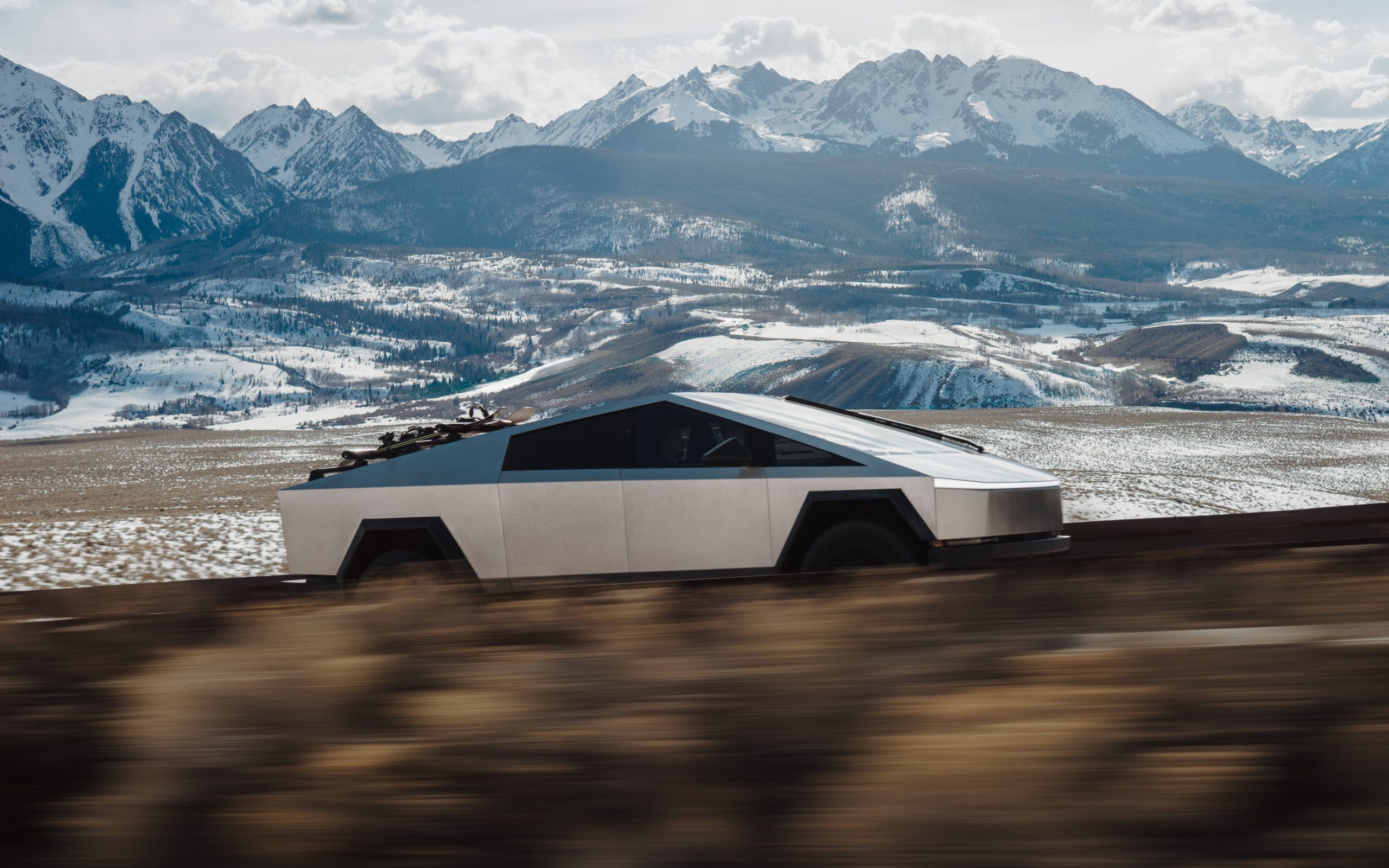
Tesla is set to activate a long-awaited Cybertruck feature, and no matter when you bought your all-electric pickup, it has the hardware capable of achieving what it is designed to do.
Tesla simply has to flip the switch, and it plans to do so in the near future.
Tesla will officially activate the Active Noise Cancellation (ANC) feature on Cybertruck soon, according to Not a Tesla App, as the company has officially added the feature to its list of features by trim on its website.
Tesla rolls out Active Road Noise Reduction for new Model S and Model X
The ANC feature suddenly appeared on the spec sheet for the Premium All-Wheel-Drive and Cyberbeast trims, which are the two configurations that have been delivered since November 2023.
However, those trims have both had the ANC disabled, and although they are found in the Model S and Model X, and are active in those vehicles, Tesla is planning to activate them.
In Tesla’s Service Toolbox, it wrote:
“ANC software is not enabled on Cybertruck even though the hardware is installed.”
Tesla has utilized an ANC system in the Model S and Model X since 2021. The system uses microphones embedded in the front seat headrests to detect low-frequency road noise entering the cabin. It then generates anti-noise through phase-inverted sound waves to cancel out or reduce that noise, creating quieter zones, particularly around the vehicle’s front occupants.
The Model S and Model X utilize six microphones to achieve this noise cancellation, while the Cybertruck has just four.
Tesla Cybertruck Dual Motor AWD estimated delivery slips to early fall 2026
As previously mentioned, this will be activated through a software update, as the hardware is already available within Cybertruck and can simply be activated at Tesla’s leisure.
The delays in activating the system are likely due to Tesla Cybertruck’s unique design, which is unlike anything before. In the Model S and Model X, Tesla did not have to do too much, but the Cybertruck has heavier all-terrain tires and potentially issues from the aluminum castings that make up the vehicle’s chassis, which are probably presenting some challenges.
Unfortunately, this feature will not be available on the new Dual Motor All-Wheel-Drive configuration, which was released last week.
News
Tesla Model S and X customization options begin to thin as their closure nears
Tesla’s Online Design Studio for both vehicles now shows the first color option to be listed as “Sold Out,” as Lunar Silver is officially no longer available for the Model S or Model X. This color is exclusive to these cars and not available on the Model S or Model X.
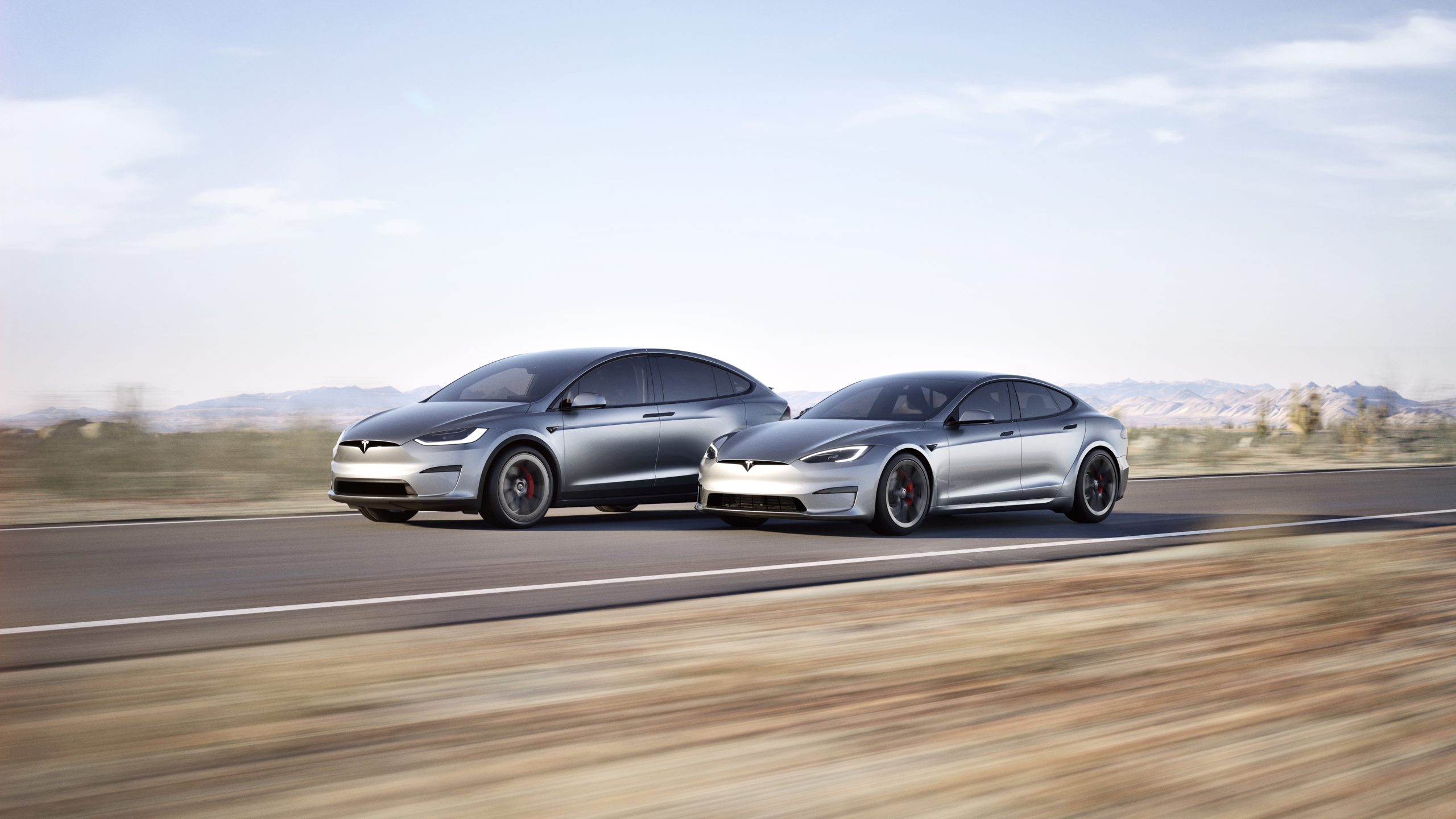
Tesla Model S and Model X customization options are beginning to thin for the first time as the closure of the two “sentimental” vehicles nears.
We are officially seeing the first options disappear as Tesla begins to work toward ending production of the two cars and the options that are available to those vehicles specifically.
Tesla’s Online Design Studio for both vehicles now shows the first color option to be listed as “Sold Out,” as Lunar Silver is officially no longer available for the Model S or Model X. This color is exclusive to these cars and not available on the Model S or Model X.
🚨 Tesla Model S and Model X availability is thinning, as Tesla has officially shown that the Lunar Silver color option on both vehicles is officially sold out
To be fair, Frost Blue is still available so no need to freak out pic.twitter.com/YnwsDbsFOv
— TESLARATI (@Teslarati) February 25, 2026
Tesla is making way for the Optimus humanoid robot project at the Fremont Factory, where the Model S and Model X are produced. The two cars are low-volume models and do not contribute more than a few percent to Tesla’s yearly delivery figures.
With CEO Elon Musk confirming that the Model S and Model X would officially be phased out at the end of the quarter, some of the options are being thinned out.
This is an expected move considering Tesla’s plans for the two vehicles, as it will make for an easier process of transitioning that portion of the Fremont plant to cater to Optimus manufacturing. Additionally, this is likely one of the least popular colors, and Tesla is choosing to only keep around what it is seeing routine demand for.
During the Q4 Earnings Call in January, Musk confirmed the end of the Model S and Model X:
“It is time to bring the Model S and Model X programs to an end with an honorable discharge. It is time to bring the S/X programs to an end. It’s part of our overall shift to an autonomous future.”
Fremont will now build one million Optimus units per year as production is ramped.








